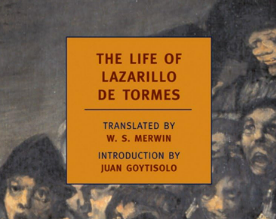Chapter V: How Lazaro Went to Work for a Pardoner and the Things That Happened to Him Then
byChapter V unfolds as Lazaro recounts his time under the employment of a pardoner—a man skilled in the art of spiritual persuasion and even more adept at deceit. This pardoner makes his living selling papal indulgences, documents claiming to absolve sins in exchange for a fee, and he crafts every word and gesture to sell them convincingly. He begins his efforts with small bribes to the local clergy, giving wine, fruit, or small coins to secure their support in urging parishioners to buy. The pardoner adapts his speech depending on the audience—sophisticated Latin when preaching to educated priests, simpler words when addressing village masses. Lazaro, watching from the side, begins to understand how easily faith can be manipulated when cloaked in performance. What astonishes him most is not the cleverness of the scheme, but the eagerness with which people believe it.
Trouble arises when they reach the town of Sagra, where the usual tactics fail to move the congregation. Sales stall, and the pardoner grows desperate. That’s when he arranges a spectacle with the constable, staging a loud, dramatic quarrel over a card game in the public square. The argument escalates into physical confrontation, catching the attention of the curious townspeople. This spectacle is not aimless—it’s a calculated setup. The following day, the pardoner delivers a fiery sermon, extolling the power of indulgences. At the peak of his message, the constable interrupts, denouncing the documents as fraudulent and accusing the pardoner of lying to the people. The crowd gasps, torn between trust and suspicion.
In response, the pardoner drops to his knees and offers a tearful prayer, calling upon heaven to strike down whichever of them speaks falsely. Then, as if on cue, the constable begins convulsing violently, collapsing in front of the stunned crowd. Shouting, trembling, and rolling on the floor, he appears overtaken by divine wrath. The townspeople rush forward, restraining him, convinced they are witnessing a heavenly sign. Some cry, others pray, and all look to the pardoner as a vessel of righteousness. The pardoner, his hands still clasped in prayer, rises slowly and blesses the water brought to him by trembling hands. He touches it to the constable’s lips. Moments later, the man appears cured, dazed and penitent. It is a perfect miracle—except for those like Lazaro who saw the rehearsal.
Lazaro, while impressed by the crowd’s reaction, cannot help but reflect on the disturbing efficiency of such deceit. The performance, flawless in its execution, reveals how easy it is to bend faith into fear and fear into profit. No one questions the authenticity of the convulsions, nor do they doubt the spiritual power of the pardoner. People rush to buy indulgences now, lining up with coins and contrition. The town believes a sinner has been punished, a holy man has triumphed, and that salvation is a slip of parchment away. Meanwhile, the pardoner counts his earnings with silent satisfaction, and Lazaro watches with a mix of admiration and unease. He knows he’s witnessing manipulation perfected into ritual.
This chapter exposes not only religious hypocrisy but also the mechanisms of spectacle and belief. The pardoner is not simply a swindler; he is a performer who understands the emotional pulse of the people he exploits. He offers not truth, but comfort wrapped in theatrics. And the people, hungry for meaning and miracles, buy what he sells with eager hearts. Lazaro’s role is minor, yet his observations add depth to the critique. He does not condemn the townspeople. Instead, he highlights how belief, when tangled with desperation, can be steered like a cart through muddy roads. The experience becomes another lesson in his education through hardship—a testament to how survival often depends not on truth, but on the clever use of illusion.
In the end, Lazaro sees the pardoner for what he is: a man who has mastered the art of deception by borrowing the language of faith. There is no punishment for this act because the people leave satisfied, their guilt traded for paper and spectacle. For Lazaro, this moment lingers—not because he envies the pardoner’s gains, but because it proves how easily power dresses itself in piety. And in a world where appearance shapes truth, sometimes the cleverest thief is the one who never touches a purse, only hearts.

